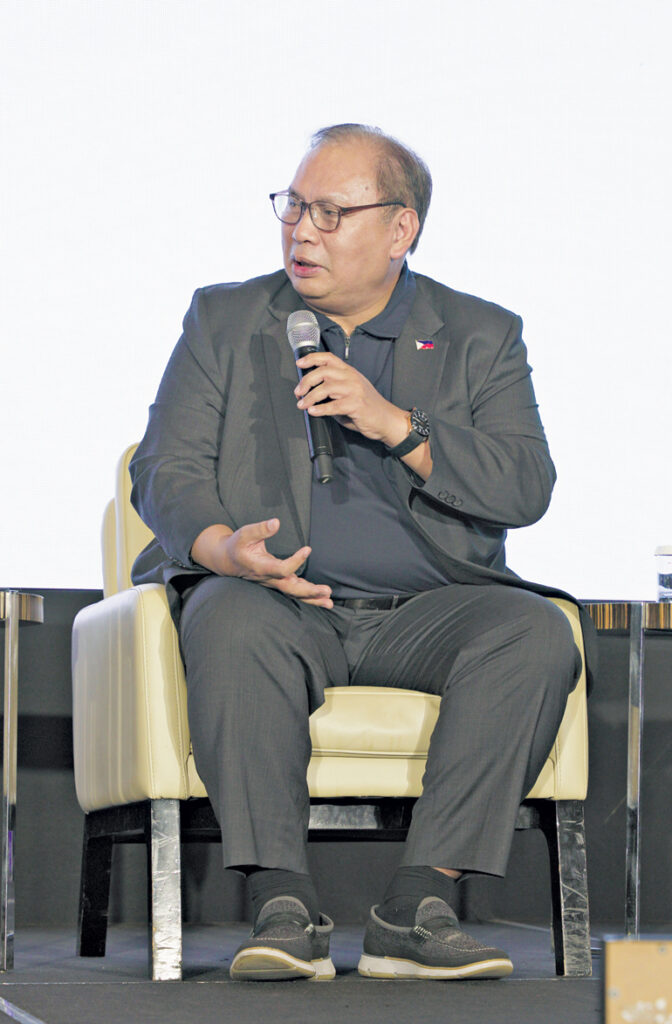Safeguarding businesses in the digital landscape

Strategies for cyber resilience in organizations
By Jomarc Angelo M. Corpuz
Strengthening the security and resilience of the country’s cyberspace is key in making an already rising digital economy become a driving force for growth in the Philippines. With Google’s “e-conomy SEA report” indicating a growth of 13% from $22 billion in 2023 to more than $24 million in 2024, it is evident that the digital sector holds significant potential for economic advancement.
The rapid rise of the digital economy in the Philippines presents both opportunities and challenges. Capitalizing on this momentum, safeguarding digital assets and more were discussed during the fourth panel discussion at the BusinessWorld Economic Forum on May 22 at the Grand Hyatt Manila.

The economic forum gathered experts from both the private and public sectors including Ingrid Beroña, chief risk officer of GCash; Police Col. Jay D. Guillermo, chief of the Cyber Response Unit at the Philippine National Police (PNP) Anti-Cybercrime Group (ACG); Alexander K. Ramos, executive director at Cybercrime Investigation and Coordinating Center (CICC); and Chito Jacinto, vice-president and chairman of membership and events at Information Security Officers Group (ISOG).

In his opening statement, Mr. Jacinto outlined three essential things that companies need to do to digitalize and protect their digital assets and information assets from potential cyber threats and data breaches.
The first of these essentials is the technology for a company’s information technology infrastructure. He noted that the “easy part” of digital protection has to be set up and done properly for the infrastructure to be effective.
However, technology alone is not enough; Mr. Jacinto mentions that robust processes must also be established to ensure the effective use of equipment and technology.
Finally, the third, and weakest link, is people. The ISOG officer acknowledges that even experienced personnel in the field of cybersecurity, like himself, can occasionally have lapses. This problem underscores the importance of continuous training and awareness programs to minimize human error and reinforce a culture of security within the organization.
“Please make sure, take note, that when you implement your ITs, IT infrastructure is dependent on three things: people, processes, and technology. If any one of these three fails, your infrastructure fails as well,” Mr. Jacinto said.
Meanwhile, Ms. Beroña, representing the private sector, strongly advocated for increased government support in safeguarding the nation’s cyberspace to create a more secure digital environment that benefits businesses and consumers alike.
“We are only as good as how much support, and how much investment our government gives into this space… We have really good programs and initiatives that we have worked on with some of our local authorities to really push through with safeguarding the cybersecurity world of the Philippines and we are continuously working with them,” she said.

Mr. Guillermo, serving as a government official, pushed for stringent measures such as account freezing and suspension in response to scams and fraud on online platforms. He argued that these decisive actions are essential to deter cybercriminals and protect consumers from financial losses.
“On the part of the private sector, maybe you can have your own regulations and it must also be aligned with the policies of the government, because every time the victims will be asking, ‘When can we get our money back?’ There must be a policy of freezing and recovery of this amount of money that was taken from the victims,” he said.
Additionally, the police officer highlighted some of the problems law enforcement faces when investigating cybercrimes across multiple platforms in the digital space. He noted that the more times ill-gotten money changes hands, the harder it is for authorities to recover it.
“There is an interconnectivity with all financial institutions including those like online platforms, online shopping, and these mobile transportation apps. All of these applications are interconnected wherein you can transfer money to these applications. So that is the challenge for law enforcement because money moves very fast,” Mr. Guillermo added.

Furthermore, Mr. Ramos suggested a shift in the focus of improvement for online services from speed to security. Recognizing the increasing significance of cybersecurity in today’s digital landscape, he emphasized the necessity of redirecting efforts toward fortifying the security infrastructure of online platforms and transactions.
“Everybody is competing for speed. Delivery of services, speed is a factor and with the challenges we are seeing now, I believe we have to give the consumer the upper hand. We have to give them the control over their transactions. Right now, most online transactions rely on speed only, security is at the back end of it,” Mr. Ramos said.
The executive director of the CICC also campaigned for the advancement of technological infrastructures in companies, and the promotion and skill enhancements of IT practitioners in order to bolster cyber defenses.
“We must protect this industry both from a technological standpoint and the empowerment of our skilled laborers who operate this technology. Cybersecurity is not just about safeguarding the technology, but also about empowering the users. That is the direction where we are going right now, increasing digital literacy,” Mr. Ramos explained.
The insights shared by industry experts at the BusinessWorld Economic Forum underscore the importance of prioritizing cybersecurity measures for businesses in the digital age. As the Philippines’ digital economy continues to grow exponentially, both the private and public sectors must recognize that safeguarding their digital assets and infrastructure can lead to the sustainable growth of the Philippines’ next economic driver.



